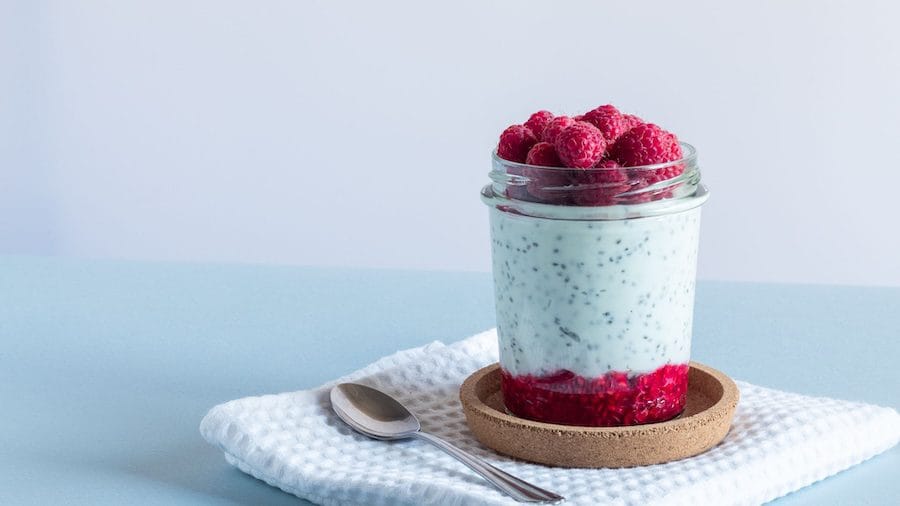What Is a Plant-Based Diet?

You want to eat healthier—maybe to feel more energized, support your overall health, or because you’ve heard about the benefits of a plant-based diet. But as soon as you start exploring the topic, it can quickly get confusing. What does plant-based actually mean? Do you have to cut out all animal products? Will you still get enough protein? And what about essential nutrients?
There’s a lot of information out there, and it can feel overwhelming—sometimes even contradictory. That can leave you unsure where to begin or questioning whether plant-based eating is right for you.
At Plants for Health, we guide people through these exact questions every day. Backed by science and grounded in real-life experience, we show that eating more plant-based doesn’t have to be complicated. With the right approach, you’ll get all the nutrients you need, feel more energized, and improve your health—without strict rules or counting calories and macronutrients.
So, What Is a Plant-Based Diet?
A plant-based diet means your diet consists primarily (or entirely) of foods that come from plants—like vegetables, fruits, whole grains, legumes, and nuts. Animal products—such as meat, dairy, and eggs—are either significantly reduced or entirely left out. This is what makes plant-based eating different from a vegetarian diet, which still includes eggs, cheese, and dairy. Some people choose to eat 100% plant-based (vegan), while others simply add more plant-based meals to their routine and occasionally still eat animal-based foods.
Eat More of the Good Stuff
Eating more plant-based isn’t about rules or restrictions. It’s about choosing more whole, minimally processed foods from plants—like vegetables, fruits, whole grains, legumes, and nuts. These are all incredibly nutritious and naturally rich in vitamins, minerals, fiber, and antioxidants.
Whole-Food, Plant-Based
It’s important to know: plant-based doesn’t automatically mean healthy. A plant-based diet can also include ultra-processed foods, sugary snacks, and fast food. These days, you can find vegan Ben & Jerry’s, plant-based cheeses, and even vegan pastries at the supermarket. Fun for the occasional treat, but not something to build your diet around. The real health benefits come from a (mostly) unprocessed, whole-food plant-based diet—rich in vegetables, fruits, whole grains, legumes, nuts, and seeds.
Eating for Balance
Thinking about eating (more) plant-based? Then it’s key to make sure your meals are nutritionally complete. Just like any eating pattern, there are a few things to keep in mind. If your diet is well-structured and includes the right supplements, you can easily meet all your nutritional needs. And this isn’t just a concern for plant-based eaters. Vegetarians and meat-eaters are also at risk for certain deficiencies. Everyone benefits from paying attention to nutrients like iron (especially for women), vitamin D, and calcium. The specifics depend on your overall eating habits.
People who eat mostly plant-based tend to get more of the following nutrients:
- Fiber
- Alpha-linolenic acid (ALA, an omega-3 fatty acid)
- Unsaturated fats
- Vitamins B1, B6, B11, C, E
- Magnesium (3)
How to Build a Balanced Plant-Based Plate
At every meal, aim to fill:
- Half your plate with vegetables and fruit
- A quarter with whole grains
- A quarter with plant-based proteins like beans, tofu, soy milk, or soy yogurt
- Add healthy fats like nuts and seeds
Key supplements for a plant-based lifestyle include:
- Vitamin B12 (essential!)
- Vitamin D3 (especially in winter or with little sunlight exposure)
- Omega-3 fatty acids (preferably from algae oil)

Plants for Health plate
Health Benefits
- Research shows that a more plant-based diet can offer significant health benefits. People who eat mostly plant-based are more likely to have:
- A healthy body weight
- More mental and physical energy
- Healthy blood pressure
- Improved cholesterol and blood sugar levels
- Lower levels of inflammation
- Less joint pain and stiffness (including from arthritis)
- A reduced risk of chronic diseases like heart disease, type 2 diabetes, and certain types of cancer (1–2)
What Could This Look Like in Practice?
Eating more plant-based can make a real difference. Think: more energy throughout the day, no more post-lunch crash, and a lighter, more energetic feeling overall. Your meals are full of color and flavor, and you know exactly what you’re eating—and why. You’re making conscious choices that feel good, not restrictive. In fact, you might just enjoy them more.
Knowledge is one thing—action is another. It’s easier together. Start your journey with the support of like-minded people: Explore the options here.
Sources
1. Wang, Y., Liu, B., Han, H., Hu, Y., Zhu, L., Rimm, E. B., Hu, F. B., & Sun, Q. (2023). Associations between plant-based dietary patterns and risks of type 2 diabetes, cardiovascular disease, cancer, and mortality – a systematic review and meta-analysis. Nutrition journal, 22(1), 46.
2. Walrabenstein, W., Wagenaar, C. A., van der Leeden, M., Turkstra, F., Twisk, J. W. R., Boers, M., van Middendorp, H., Weijs, P. J. M., & van Schaardenburg, D. (2023). A multidisciplinary lifestyle program for rheumatoid arthritis: the ‘Plants for Joints’ randomized controlled trial. Rheumatology (Oxford, England), 62(8), 2683–2691.
3. Neufingerl, N., & Eilander, A. (2021). Nutrient Intake and Status in Adults Consuming Plant-Based Diets Compared to Meat-Eaters: A Systematic Review. Nutrients, 14(1), 29.